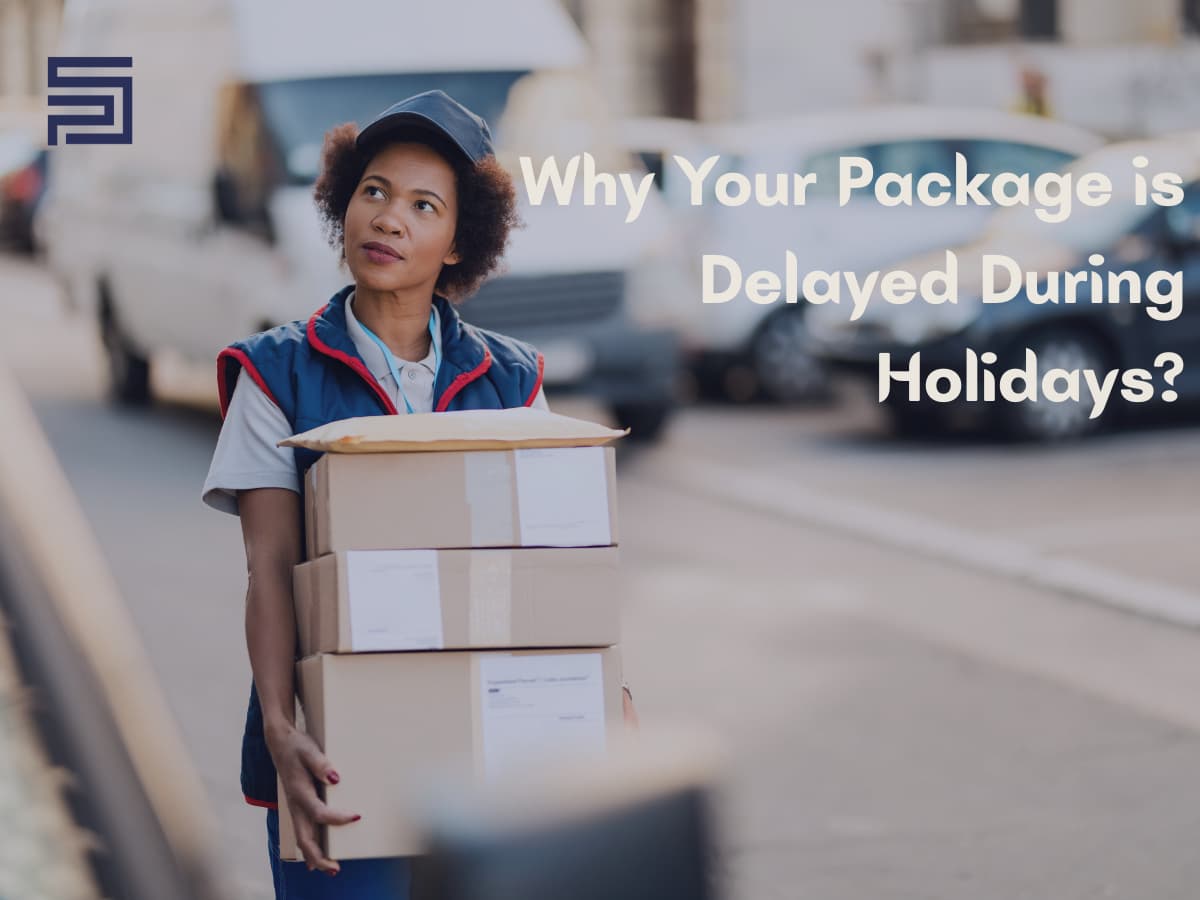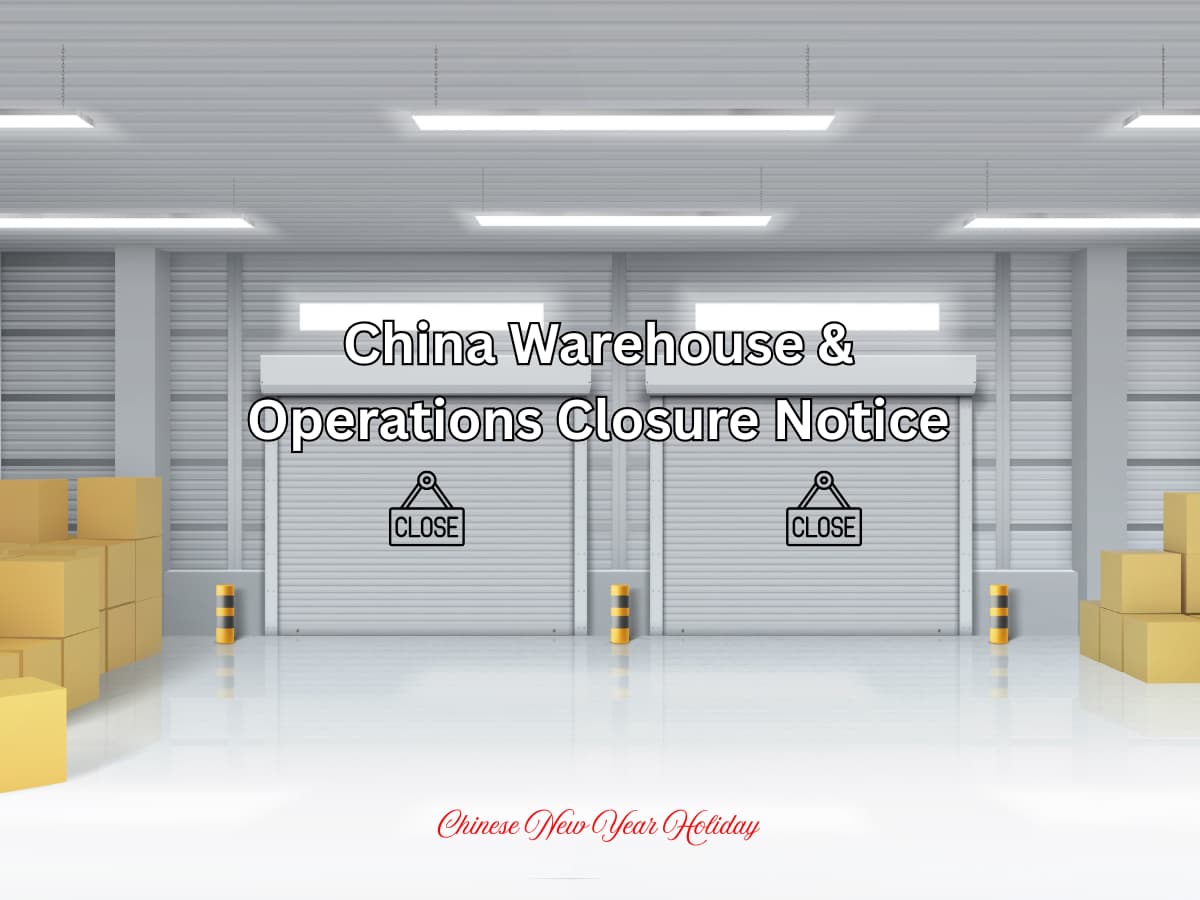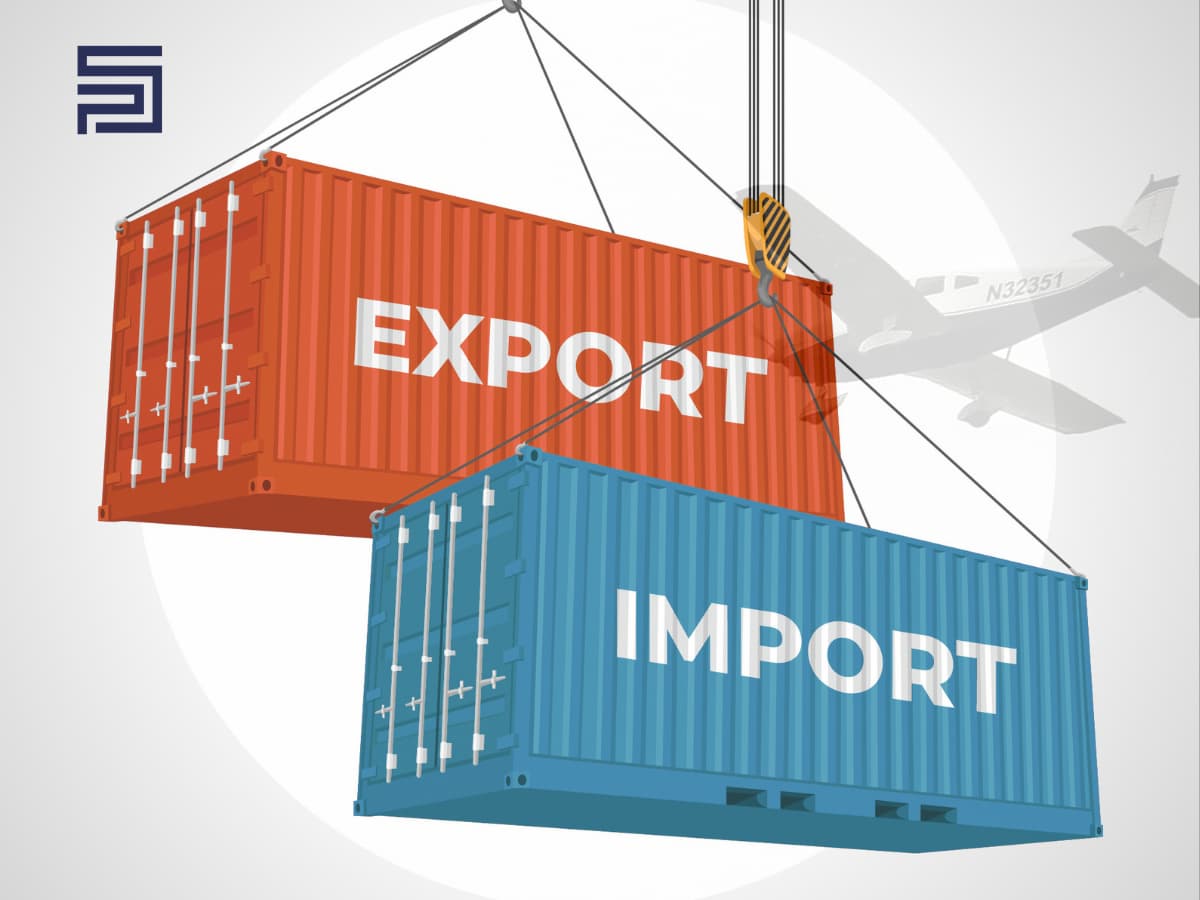The holiday season brings joy, celebration and unfortunately, shipping delays. If you're wondering, "Why is my package delayed during holidays?" you're not alone.
In this guide, we'll break down the main reasons packages get stuck during holidays, what you can do when delays happen, and how working with experienced freight forwarders like SARA can minimise disruptions to your time-critical shipments.
Do you need urgent help with a delayed shipment? Contact SARA's priority handling team. We'll review your situation, coordinate with carriers and customs authorities, and explore expedited alternatives to get your critical shipments moving.
Top Causes of Holiday Package Delays
1. High Package Volumes & Carrier Capacity Limits:
The most predictable cause of holiday shipping delays is simple math: too many packages, not enough trucks and planes. During peak seasons like Christmas, Black Friday, and Chinese New Year, shipping volumes can increase by 50-100% while carrier capacity remains relatively fixed.
Major carriers implement volume restrictions and peak surcharges, but even with these measures, their networks become saturated. This means your package might sit in a sorting facility for days waiting for available space on the next truck, ship or flight.
2. Labour Shortages and Strikes:
Carriers, warehouses, and ports often struggle with staffing during holidays. Workers take vacation time, seasonal hiring doesn't always meet demand, and labour disputes can emerge during contract negotiations. Recent years have seen strikes at major ports and shipping companies that brought operations to a standstill.
When warehouse staff is reduced, package processing slows dramatically. A facility that normally processes 100,000 packages per day might handle only 60,000 or fewer during holiday periods, creating automatic backlogs.
3. Weather and Force Majeure:
Winter weather, hurricanes, and other natural disasters can disrupt entire shipping networks. A snowstorm on a certain path can delay packages nationwide for several days.
Port closures due to severe weather are particularly disruptive for international shipments. When major ports close for even 24 hours, the ripple effects last for weeks.
4. Customs Clearance & International Processing:
International shipments face additional delays during holidays as customs agencies operate with reduced staff.
Why is my package delayed in customs? Often it's because:
- Customs officers are working limited hours,
- Higher package volumes mean longer inspection queues,
- Missing or incorrect documentation requires manual review,
- Holiday closures at government agencies delay duty payments and clearances.
Even minor paperwork errors that might be quickly resolved during normal periods can cause week-long delays during holiday customs backlogs.
Working with experienced customs brokers becomes crucial during these periods. SARA's customs team pre-reviews documentation before shipment, ensuring HS codes are correct and all required paperwork is complete. This proactive approach prevents most customs delays before they start.
5. Incorrect Address & Missing Documentation:
Address errors become more problematic during peak seasons because carriers have less time to research and correct delivery problems. A package with a wrong apartment number might sit at a facility for days rather than getting immediate attention.
For international shipments, missing commercial invoices, incorrect HS codes, or incomplete importer information can trigger customs holds that last much longer during busy periods.
6. Vessel Delay & Port Congestion:
Ocean freight faces unique holiday challenges, and vessels are delayed during holidays for various reasons, which include:
- Ports are operating reduced schedules during holiday periods
- Increased container volumes are creating terminal congestion
- Limited trucking capacity to move containers from ports
- Equipment shortages (chassis, containers) due to high demand
A vessel that might typically clear port in 2-5 days can take 1-2 weeks during peak congestion periods.
Why the Tracking Status Sometimes Says "Delayed".
Seeing "delayed" in your tracking can be frustrating, but understanding what it really means helps manage expectations. Carriers mark packages as "delayed" when they miss their original estimated delivery date, but this doesn't necessarily mean the package is lost or stuck permanently.
Common tracking statuses during delays include:
1. Awaiting manifest:
Package is ready to ship but is waiting for space on the next available transport.
2. Processing at facility:
Package is sitting in the queue at an overwhelmed sorting centre.
3. Customs clearance in progress:
Package is under review by customs authorities
4. Weather delay:
Transportation of the package is suspended due to conditions.
Note: Many packages marked "delayed" still deliver within 2-3 business days of the original estimate.
The key is monitoring whether tracking scans continue to update on the tracking tool webpage, indicating the package is still moving through the network.
You can also contact our team for details on your shipment if you notice that anything is off.
What You Can Do If Your Package Is Delayed.
When your package shows delays, take the following systematic action to resolve the situation faster:
Step 1: Check recent tracking scans:
Look at timestamp details, not just the summary status. If scans stopped updating 5+ days ago, escalate immediately.
Step 2: Verify the shipping address:
Confirm with the sender that your full address, including apartment numbers and ZIP codes, is correct in their system.
Step 3: Contact the carrier directly:
Use the tracking number to speak with customer service. Ask specifically about the last scan location and the expected timeframe for the next movement.
Step 4: Request proof of progress:
For international shipments, ask for customs clearance documentation or manifest records showing your package entered the clearance process.
Step 5: Consider rerouting options:
Many carriers allow packages to be held at facilities for pickup or rerouted to alternate addresses, which can be faster than waiting for regular delivery.
Step 6: Escalate through proper channels:
If you paid by credit card, understand your chargeback rights. If you purchased through a platform, use their buyer protection programs.
For businesses working with freight forwarders like SARA, your account manager can pull detailed status reports and push for priority handling when time is critical.
When Should You Be Worried?
Not all delays are created equal. Here's when to escalate:
For domestic express services:
Escalate if there's no tracking update for 3+ business days beyond the original delivery estimate.
For international air freight:
Escalate if customs clearance shows no progress for 7+ business days.
For international ocean freight:
Allow 2-3 additional weeks during peak season, but escalate if vessel tracking shows the ship hasn't moved for 10+ days without explanation.
Is it normal for a package to be delayed?
During holiday periods, yes. But packages that go completely "dark" in tracking systems require immediate attention.
Most carriers have specific timeframes for lost-in-transit claims. FedEx allows claims after 14 days for international shipments, while UPS varies by service type. Understanding these windows helps you act within your rights as a shipper or recipient.
How SARA Helps Minimise Holiday Delays.
While no freight forwarder can eliminate holiday delays entirely, SARA's approach significantly reduces both the frequency and impact of delays through:
1. Multi-carrier contingency planning:
Rather than relying on a single carrier, SARA maintains relationships with multiple airlines, ocean carriers, and express services. When one carrier faces severe delays, shipments can be rerouted through alternatives.
2. Proactive customs handling:
Our customs brokerage team reviews documentation before shipment, submits clearance paperwork in advance when possible, and maintains direct relationships with customs officials to expedite urgent releases.
3. Real-time communication:
SARA provides detailed tracking updates beyond basic carrier scans, including estimated customs clearance times, vessel berthing schedules, and proactive notifications when delays are likely.
4. Priority escalation services:
For time-critical shipments, SARA can arrange premium handling, expedited customs clearance, and emergency air freight alternatives when ocean shipments face extended delays.
Frequently Asked Questions
1. Do packages get delayed during holidays?
Yes, package delays are extremely common during holiday periods due to increased shipping volumes, reduced carrier capacity, and holiday closures at processing facilities.
2. Can holidays affect shipping?
Absolutely. Holidays impact shipping through carrier closures, reduced processing capacity, customs delays, and significantly higher package volumes competing for limited transport space.
3. What do I do if my package doesn't arrive on time?
Check recent tracking scans, verify your shipping address with the sender, contact the carrier directly, and escalate through the freight forwarder if the delay extends beyond reasonable timeframes.
4. Can a delayed package still arrive on time?
Sometimes. Packages marked "delayed" often still deliver within 2-3 days of the original estimate, especially if tracking scans continue updating, showing the package is moving through the network.
5. Why is my package delayed in customs?
Customs delays typically result from missing documentation, incorrect HS codes, unpaid duties and taxes, random inspections, or reduced customs processing capacity during holiday periods.
6. Is it normal for a package to be in transit for 2 weeks?
For international ocean freight during peak seasons, 2 weeks is not unusual. For domestic or international express services, 2 weeks indicates a significant delay requiring escalation.
7. How long should I wait for a package before worrying?
Wait 3-5 additional business days beyond the estimated delivery for express services, 5-7 days for ground services, and 2-3 additional weeks for ocean freight during peak seasons before escalating.
8. Should I be worried if my package is delayed?
Generally, no, if tracking scans continue updating. Worry when tracking goes "dark" with no scans for extended periods, or when delays exceed typical peak-season expectations for your service type.
9. What is the main reason for shipping delays?
During holidays, the primary cause is capacity constraints, too many packages competing for limited transport space on trucks, planes, and vessels, combined with reduced processing capacity at facilities.
Final Tips & Prevention Checklist
When working with our clients at SARA, here are the tips we use and also advise our clients to follow to get the best service even during the holidays:
- Order early: Add 5-10 extra business days to normal shipping times during peak seasons. And for ocean freight, you can order 2-3 months ahead.
- Use tracked and insured services: Provides visibility and recourse options if problems arise.
- Confirm documentation accuracy: Verify HS codes, commercial invoices, and importer details before international shipments
- Consider consolidation: Combine multiple orders to reduce individual package risk
- Diversify carriers: Don't rely on a single shipping method for critical deliveries
- Build buffer time: Factor delays into customer delivery promises and personal expectations
- Work with experienced partners: Freight forwarders with customs expertise can navigate holiday challenges more effectively.
Holiday shipping delays are frustrating but manageable with the right approach. By understanding the causes, taking appropriate action when delays occur, and working with experienced logistics partners, you can minimise the impact on your business or personal deliveries.
Take Note: While it is possible to take effective action when shipping during the holidays, the best advice we can give you at SARA from our years of experience in shipping is to plan your shipping needs weeks or even months before the holidays.
You can also choose to place orders ahead and store them in SARA’s warehouse close to you.






Comments
Please log in to leave a comment.